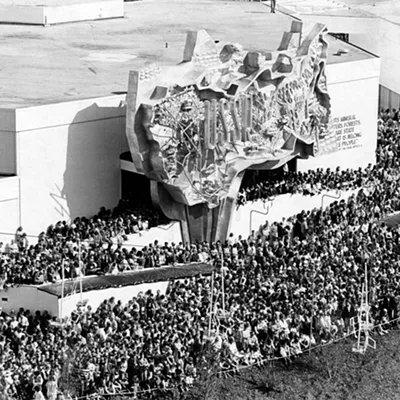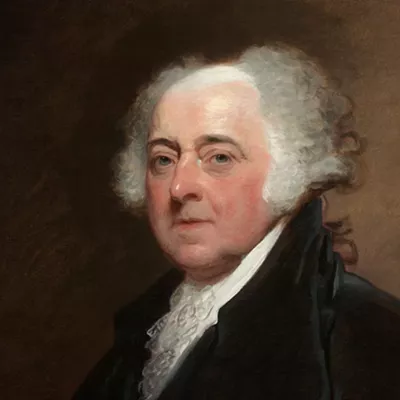
After enduring more than two years of war, Ukraine went on the offensive this month. This wasn't the first time that Ukrainian-backed forces had launched "border incursions" into Russian territory. But the new Kursk offensive is different. This time, thousands of Ukraine's best-trained and equipped soldiers orchestrated a sustained military operation that President Volodymyr Zelenskyy hopes will draw Russian resources away from their recent plodding gains in eastern Ukraine, create a buffer zone to relieve Ukrainian civilians from Russian bombardment and, perhaps, improve Ukraine's position in future negotiations to end the conflict.
Ukraine's offensive marks the first time that a foreign power has captured Russian territory since World War II. Ukrainian officials claim that they control roughly 490 square miles of the Kursk Oblast and have captured hundreds of Russian troops. The "Great Patriotic War" — as the Second World War is known in Russia — occupies a sacred place in the public memory of Vladimir Putin's Russia. The failure of Russian forces to prevent Ukraine's invasion is deeply embarrassing to him because it undermines his strongman image.
But should Putin find solace from the lessons of history? As any WWII buff can tell you, Hitler's decision to invade Russia in 1941 proved fatal to the Nazi regime. Germany's advance deep into the Soviet Union bled the Wehrmacht white, culminating in the defeat of German forces at Stalingrad in early 1943 and the eventual unconditional surrender of Nazi Germany at the hands of the combined Allied Powers in 1945.
Hitler was not the first "little corporal" bent on European domination to rue his decision to invade Russia. In June 1812, Emperor Napoleon I of France led his Grande Armée of 500,000 men into Russian territory. Napoleon was arguably at the pinnacle of his power, having defeated the leading continental European powers of Austria, Prussia and Russia in a series of brilliant campaigns in central Europe over the previous decade.
The British Empire, however, remained undefeated after its great naval victory over the Franco-Spanish fleet at the Battle of Trafalgar in 1805. Napoleon could not afford to ignore the British. Their army maintained a stubborn campaign in his brother's neighboring kingdom of Spain, and, more importantly, Napoleon knew that he could not count on the long-term loyalty of his reluctant Austrian and Prussian allies so long as Britain was willing to finance new coalitions against France.
"The failure of Russian forces to prevent Ukraine's invasion is deeply embarrassing..."
Napoleon coerced the defeated European powers into adhering to his "continental system," which aimed to starve the British into submission by cutting off its trade with mainland Europe. The system was unpopular, and by 1812 Tsar Alexander I of Russia had decided that he didn't want to play ball any longer. Napoleon decided it was time to teach the young Alexander a lesson.
The French invasion of Russia in 1812 was an unmitigated disaster. The wily Russian commander Mikhail Kutuzov tried to avoid facing Napoleon's forces in a decisive pitched battle, opting to retreat into Russia's vast territory and use his Cossack cavalry to harass the invaders. When Napoleon managed to eke out a narrow victory at the Battle of Borodino, the Russians chose to burn Moscow rather than allow it to fall into enemy hands.
And then "General Frost" did his terrible work. The Russian winter destroyed Napoleon's Grande Armée; historians estimate that as many as 400,000 soldiers perished during the campaign. The overwhelming majority died of disease and starvation during the harrowing two-month retreat from Moscow. The Russian campaign did not seal Napoleon's eventual fate, but it did mark a dramatic change in his fortunes.
Are those who do not know history
doomed to repeat it? Armchair strategists usually point to Hitler's invasion of Russia in 1941 as evidence of this. It was only Hitler's hubris that could lead him to ignore the lessons of Napoleon's humbling defeat of 1812. And he (thankfully) paid the price.
Make no mistake. Zelenskyy is no Hitler or Napoleon. He is bravely leading his people through an unprovoked, brutal invasion, launched by Putin. But despite the different personalities involved, will Ukraine's campaign in Russia in 2024 prove equally disastrous to those of 1812 and 1941?
Only time can tell.
But historians are often suspicious of the idea that history repeats itself. To be sure, thinking about historical parallels can be a useful way to frame decisions about the present. But that doesn't mean that the future is predetermined. Historians tend to emphasize the importance of contingency in the past. Things didn't have to turn out the way that they did, and it is our job to work out what factors shaped historical outcomes.
So what might this mean for Ukraine's Russian advance? What could Zelenskyy learn from 1812 and 1941? Both Napoleon and Hitler engaged in a deep invasion of Russian territory, aimed at neutralizing the military power of the Soviet Union. These grand ambitions overstretched their supply lines, proving fatal to both their geopolitical ambitions and to their troops on the ground, who could not survive the brutal war of attrition during the long Russian winter.
The Ukrainian invasion is not aimed at Moscow, or anywhere near as far from home. Kyiv has no ambition to conquer the Russian Federation. So long as Zelenskyy and his generals manage their strategic objectives in the Kursk Oblast, they will hopefully avoid a disastrous repetition of 1941 or 1812. Which reminds us that historical outcomes are often driven by the decisions we take, not the inescapable, invisible hand of fate. ♦
Lawrence B.A. Hatter is an award-winning author and associate professor of early American history at Washington State University. These views are his own and do not reflect those of WSU.























